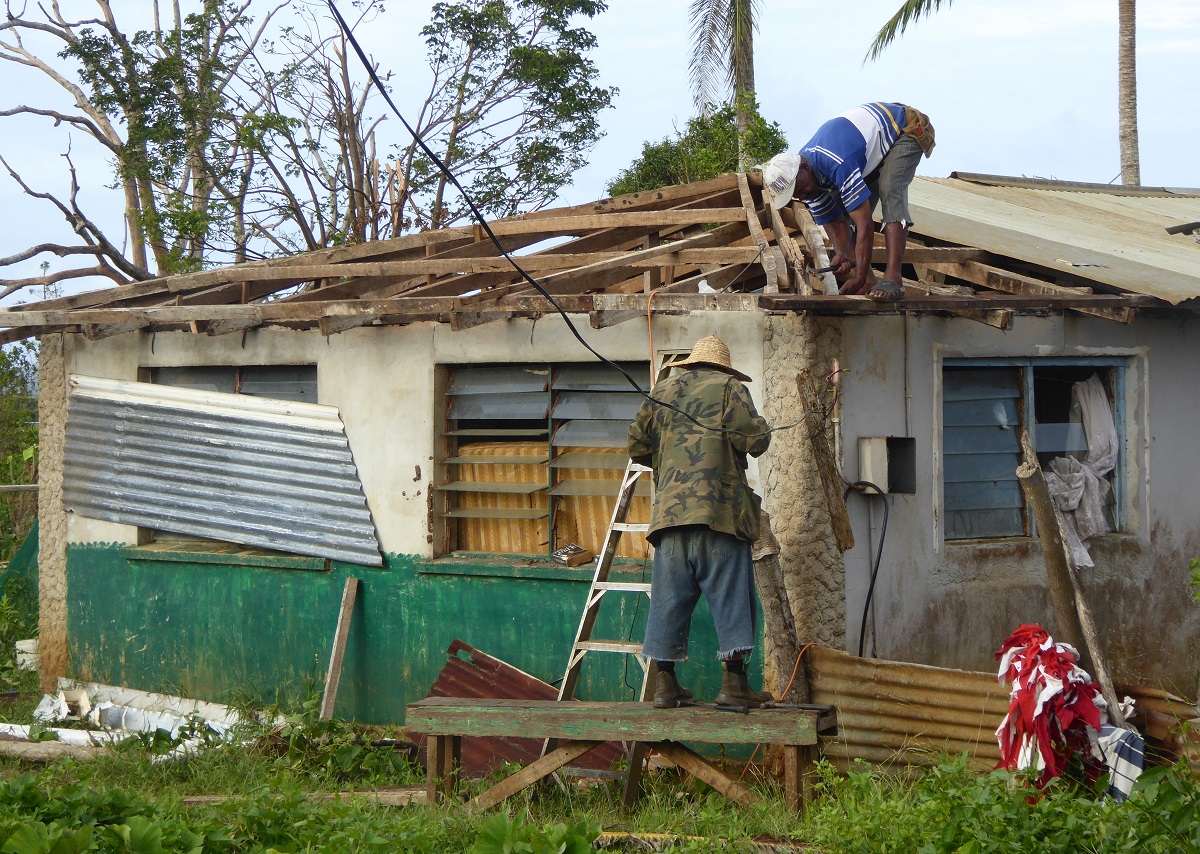Up to 50,000 people have been affected by a cyclone in the South Pacific islands of Tonga, damaging and destroying homes, leaving families without shelter and basic resources.
Cyclone Gita hit on 12 February directly over the 'Eua and Tongatapu islands and Start Network member agencies immediately raised an alert to the Start Fund to respond to the crisis. Care International was chosen to provide vital water, sanitation, hygiene and shelter support to those who had been devastated by the cyclone .
Although Cyclone Gita was not as strong as Pam in Vanuatu or Winston in Fiji, its effects have been felt widely across the main island of Tongatapu and the nearby island of ‘Eua. Damage to housing is widespread and varied, ranging from light damage to roofs, to total destruction. ‘Eua is one the worst affected areas with more than a quarter of homes on the island (approximately 257 homes) damaged or destroyed. Tongatapu, with a much larger population, has seen damage to more than 2,000 homes.
Some homes were completely destroyed after Cyclone Gita hit. Image: CARE UK/Bill Flinn
Care International is working in partnership with two local non-government organisations (NGOs); Mainstreaming of Rural Development Innovation Tong Trust (MORDI) and Live & Learn. Within days of the storm hitting, Care International, MORDI and Live & Learn distributed tarpaulin sheets and hygiene kits and did assessments covering the whole of the island of ‘Eua. Since then, the organisations have also supported families in Tongatapu as well as two small islands with 30 houses or so and tiny populations.
The rapid rate of recovery is evident on the Island of ‘Eua where MORDI and Live & Learn is focusing their work. Roofs that had been stripped off were already nailed back on; families were busy cleaning up and repairing. On the other hand, there are some families that have lost everything and are living in Red Cross tents. Care International, MORDI and Live & Learn will put emphasis on supporting these very vulnerable families throughout the duration of their humanitarian response.
The Start Fund, designed to fill critical gaps by enabling aid agencies to respond early and fast to small and medium emergencies, is funding the work. The Start Fund was alerted, project proposals were received and vetted with the chosen response initiated within six days.
The rapid process of the Start Fund is enabling Care International, MORDI and Live & Learn to support families to recover quickly and their approach is enabling families to manage their own recovery. A bespoke package of building materials will be delivered to each of the families affected within the next week. Families were able to choose building materials that will be most useful for the recovery of their homes.
The Start Fund response in Tonga will finish on 2 March and is expected to reach up to 2000 people.

